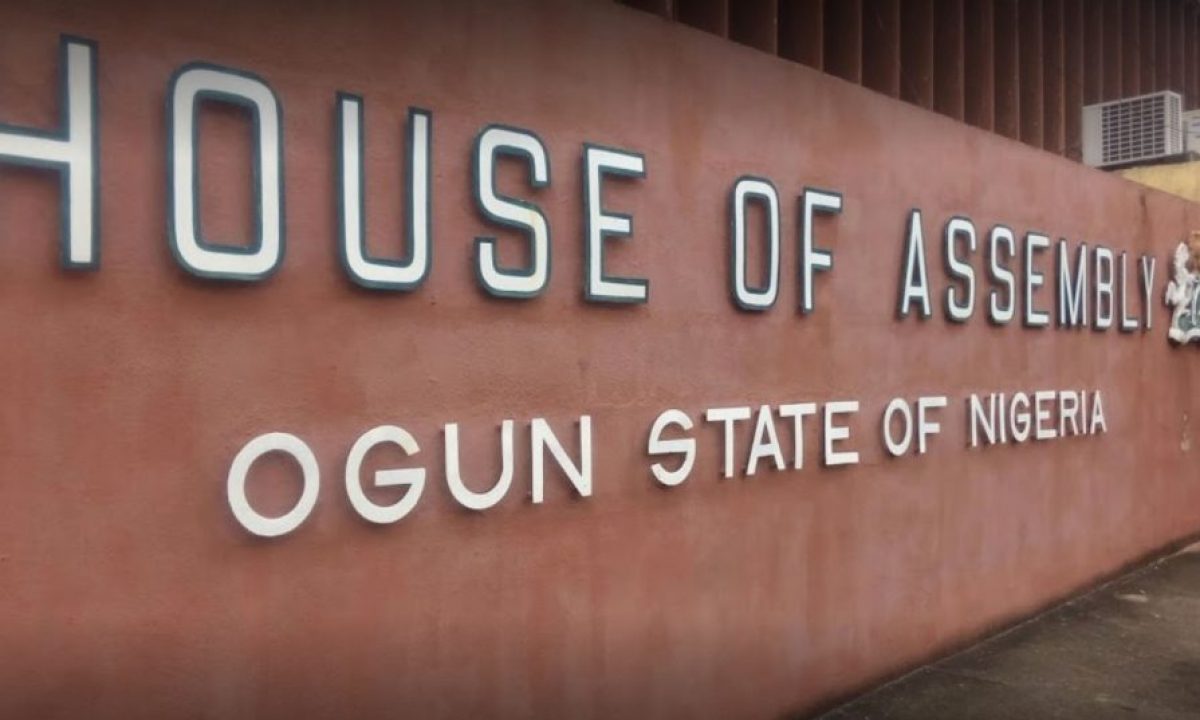News
Nigeria can generate $13.1m from Fish reef, others to boost GDP – Expert

Nigeria has an estimated capacity to generate $13.125 million annually from fish reef and new emerging sectors of blue economy, thereby, boasting the nation’s Gross Domestic Product (GDP).
Delivering his paper on ‘Nigeria’s New Ministry of Blue Economy and Marine Resources: A Panacea For Economic Growth’ at the World Aquaculture Society Global conference tagged Aquaculture America 2024 themed ‘Setting the Table for US Aquaculture,’ in San Antonio Texas, United States(US) held 18-21st February , the regional director, World Aquaculture Society(WAS), African chapter, West African region, Lanre Badmus, added that, the untapped blue economic potential of the Nigerian economy could be worth $296billion annually, significantly, boasting the overall GDP.
Disclosing that Nigeria is the largest fish consumer in Africa and the fourth largest importer of fish in the world with the fish demand of about 3.6 million metric tons of which the country only meet up 31.19% and depends on importation to meet up the huge gap of about 68.80%, he noted that, addressing these challenges and capitalizing on its blue economy potential holds immense potential for Nigeria to bridge the gap in fish import and boost the national economy.
“With a coastline of 853km and over 14million hectares of inland waters, total fish production per year is close to 1million metric tons (313.231 metric tons from aquaculture and 759,828 metric tones from fisheries), Nigeria can leverage its blue economy to achieve significant economic development, improve food security, create jobs, and adapt to a changing climate. Fishing is a vital livelihood for the poor as well as an important protein source at the household level in Nigeria (ODI/DFID, 2000). Under-explored potential suggest Nigeria utilizes only 50% of its sustainable fish potential, leaving significant room for growth,” he pointed out. Taking these advantages and utilizing its resources responsibly, Nigeria has the potential to unlock the full potential of its fishing sector, contributing to economic growth, food security, and poverty reduction.
While applauding the efforts and commitment of the current administration under the leadership of President Bola Ahmed Tinubu for creating the ministry of Blue Economy and Marine Resources to exploit its maritime resources in a sustainable and environmental friendly manner, he stressed that, with the new ministry, Nigeria could be on the way of unlocking new range of opportunities.
Discussing the objectives, goals, ministry’s vision of the present administration of President Bola Tinubu’s policy, the regional director pointed out that the new ministry has opportunities to provide food security, job creation, growth and poverty eradication in the country.
With its expansive coastline and rich marine resources, both tremendous potentials for a thriving blue economy, he said, Nigeria can create millions of new jobs from various sectors like fishing, aquaculture, fish reef, maritime transport, tourism and renewable energy.
He equally stated that the country has seven seaports which include: Apapa port, Tin can Island Port, The Onne Port, Port Harcourt Port, the Warri Port, Calabar Port and Lekki Deep Sea Port, saying, these are avenues to boost the blue economy and make it the economy’s mainstay.
Earlier, he had said, the World Aquaculture Society conference , Aquaculture America 2024, titled ‘Setting the Table for US Aquaculture’ which took place in San Antonio, Texas from February 18 to 21st, is a global conference that brings aquaculturists and critical stakeholders across the world together to discuss, brainstorm and share knowledge on innovative ways to ensure environmental and social sustainability of the aquaculture industry and the need to limit ecological impact and promote industry growth.
The Aquaculture America 2024 conference, he pointed out, serves as a vital platform of critical issues showcasing the advancement within the aquaculture industry, while focusing on sustainability and create a resilient future for the industry, while contributing to food security, economic development and environmental wellbeing.
He concluded that, International collaboration is essential for the sustainable development of the Blue Economy in Nigeria. He pointed out that as the Blue Economy has the potential to create millions of jobs and generate billions of dollars in revenue for Nigeria. However, it is important to ensure that the Blue Economy is developed sustainably through collaboration so that it does not harm the environment or the livelihoods of local communities.
News
Ogun assembly passes resolution seeking urgent clampdown on activities of cultists


The Ogun House of Assembly on Thursday passed a resolution seeking for the urgent clampdown on the activities of cultists in the state.
Mr Bisi Oyedele (APC-Ipokia/Idiroko), the sponsor of the resolution, said during plenary in Abeokuta that there was also an urgent need for Gov. Dapo Abiodun to appoint a commissioner for youths in the state.
Oyedele noted that the incessant cult killings in some parts of the state, especially Abeokuta, which had started over six weeks ago needed to be addressed as soon as possible.
The lawmaker alleged that no fewer than 10 individuals had lost their lives to cult-related violence within the last 42 days.
He stated that the rate at which lives were being lost in the state capital remained worrisome and baffling.
“Recent incidents include the shooting in broad daylight of five individuals at different locations within Abeokuta.
” Also worrisome is the continuous killings among young people across the state, which is adversely affecting businesses and tarnishing the reputation of our dear state,” he said.
Oyedele stressed that there was need for urgent intervention from both security operatives and the state government to address the escalating violence in other parts of the state.
He said that the anti-cultism section of the State Police Command must enhance intelligence gathering and take proactive measures to curb the reoccurring menace across the state.
“There is an urgent need for the governor to appoint a commissioner for youths, who will be saddled with the responsibility of providing productive initiatives for young people.
“He will also have to promote continuous engagements across the state, and drive youth-related policies and programme in the State Executive Council.
“Government should focus on continuous human capital development through job facilitation and enhance the skills of youths across the state.
“We call on the government to prioritise the aforementioned initiatives, as the time to address the root causes of social unrest and provide sustainable solutions for the youth population is now,” he said.
Other members who spoke on the resolution called on security agencies, especially the police, to do more to put an end to the issue of cultism in the state.
They called for effective youth engagements, while also calling on residents to always provide information to the police.
The Speaker, Oludaisi Elemide (APC-Odeda), implored everyone, government and parents, to be up and doing and also report suspicious moves within their environment.
The Majority Leader, Yusuf Serif (APC-Ado Odo Ota 1), moved the motion for the passage of the resolution, seconded by the Minority Leader, Lukman Adeleye (PDP-Odogbolu).
News
UniAbuja: ASUU begins indefinite strike


The Academic Staff Union of Universities, ASUU, Abuja chapter, has begun an indefinite strike to draw attention to developments bordering the union.
The Abuja chapter of ASUU announced its decision to embark on the strike on Thursday at the end of its congress, held at the Permanent Site of the institution.
Sylvanus Ugoh, who is the UniAbuja Chairman of the union, told Leadership that the union had resolved to embark on a total and indefinite strike with immediate effect.
More to follow…
News
Senate confirms minimum age requirement for admission into universities


The Nigerian Senate has made it clear that the statements regarding the potential increase of the age limit to 18 years were individual viewpoints.
The Senate stressed that any adjustments to the age limit would require proper legislative procedures, whether they involve lowering or raising the limit.
Chairman of the Senate Committee on Media and Public Affairs, Adeyemi Adaramodu, made this known in an interview with journalists on Wednesday.
Recall that last week, Prof. Tahir Mamman, the Minister of Education, stated that the government is thinking about changing the minimum age for entering universities to 18 years old.
“Comment on the minimum age requirement for admission is not a law,” the lawmaker said.
“So it is just an opinion. It’s not a law. By the time the Senate resumes, whoever wants to bring that one out to make it a law, will now bring it and then the procedures will take place.
“You can bring whatever to the floor in form of a bill. When you bring it, there’s going to be public hearing.
“All the stakeholders will sit down and talk about it. The parents, teachers, legislators, civil society organisations, even foreign organisations.
“We will sit down and talk. Even if they say that the minimum age should be 30 or 12, we will all discuss it in an open forum. So it’s still a comment which cannot be taken to be the law.”
-
capital market2 years ago
Rt.briscoe, FBNH, Others halts negative performance of stock market
-
Finance3 months ago
Court orders Sen. Victor Umeh to repay N136m bank debt to AMCON
-



 Abuja Update2 months ago
Abuja Update2 months agoUNDP, FG partnership needed to achieve inclusion, equity- Minister
-
Abuja Update1 month ago
Banks drive stock market performance with N147bn gain
-



 Business1 week ago
Business1 week agoTingo Group unveils Tingo Electric, Tingo Cola drink at Lagos launch
-



 Health2 weeks ago
Health2 weeks agoCapacity training will reduce migration of health workers- NPHCDA
-
News4 months ago
Oil thieves sponsoring malicious media campaign against Navy – Spokesman
-



 Infotech1 month ago
Infotech1 month agoWorld Backup Day: NITDA urges Nigerians to ensure backup of data








